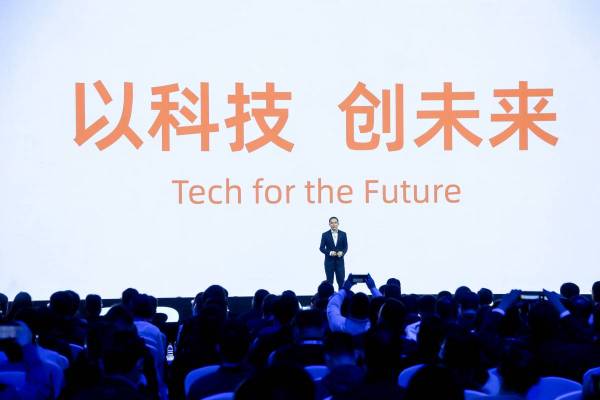
When Alibaba’s former CEO Jack Ma handed the torch to Daniel Zhang, he established a system that commonly rotates executives to make sure the corporate at all times stays agile within the fast-changing web house. It’s time for this 12 months’s reshuffle — the e-commerce and cloud computing titan made a couple of main reshuffle bulletins on Thursday.
The choice that stands out is going on at Alibaba Cloud, the third-largest public cloud infrastructure supplier on the planet solely after AWS and Microsoft. Jeff Zhang, former president of Alibaba Cloud Intelligence, is stepping down whereas Daniel Zhang (unrelated), Alibaba’s CEO, takes over as appearing president.
The timing of the restructuring is sparking hypothesis. Slightly below two weeks in the past, Alibaba Cloud’s Hong Kong servers suffered a critical outage that shut down many providers within the area, together with major crypto exchange OKX. The system failure, which lasted as much as in the future for some prospects, made the incident one of many greatest amongst Chinese language cloud suppliers in current historical past.
Jeff isn’t gone however will as a substitute focus his consideration on Alibaba’s primary analysis institute Damo Academy. As one of many 29 members of Alibaba Partnerships, a bunch of unique executives with main affect on the agency’s course, Zhang has performed a pivotal function since he joined 20 years in the past. For one, he was instrumental in designing the system infrastructure for Taobao, one of many world’s greatest on-line marketplaces.
At Damo, he’ll proceed to be accountable for IoT initiatives and Alibaba’s proprietary chip growth group T-Head, which has assumed new significance as China navigates escalating tech sanctions from the U.S.
“Over the previous 4 years, Jeff has led the Alibaba Cloud Intelligence group to ship excellent leads to technological innovation and trade affect,” mentioned Daniel in an inside electronic mail to employees.
Except for taking the helm of the cloud enterprise, the CEO may even be managing DingTalk, Alibaba’s enterprise communication app that works intently with the cloud unit. As we wrote in 2020:
At its annual summit this week, Alibaba Cloud reiterated its newest technique to “combine cloud into Dingtalk (in Chinese language),” its work collaboration app that’s analogous to Slack.
The slogan suggests the strategic function Alibaba needs Dingtalk to play: an working system constructed on Alibaba Cloud, the world’s third-largest infrastructure as a service behind Amazon and Microsoft. It’s a relationship that echoes the one between Microsoft 365 and Azure, as president of Alibaba Cloud Zhang Jianfeng beforehand instructed in an interview (in Chinese language).
It’s onerous to think about Daniel being devoted to the cloud enterprise over the long run, which might be why he’s getting the appearing president title. Because the second-biggest enterprise of Alibaba accounting for 10% of total revenues in Q2, the cloud phase will certainly exit of its option to discover the subsequent appropriate boss.
Whoever the successor is, it gained’t be a small feat. The cloud arm is experiencing sluggish development in current quarters because it loses necessary sources of abroad earnings. Alibaba Cloud was as soon as the go-to answer for a lot of Chinese language web corporations increasing overseas, however with rising geopolitical tensions, they’re turning to international suppliers like AWS to sever ties with China. Working example, Alibaba Cloud reportedly took a giant hit after TikTok moved its knowledge off its service.
As the corporate remarked in its personal phrases on its November earnings name:
“Income from prospects in [the] web trade declined about 18% that was primarily pushed by declining income from the highest web buyer that has step by step stopped utilizing our abroad cloud service for its worldwide enterprise, on-line schooling prospects, in addition to softening demand from different prospects in China web trade.”
Domestically, Alibaba Cloud faces rivalry from its nemesis Tencent, which has a stronghold in video games. It’s additionally competing with Huawei and Tianyi, the cloud offshoot of state telecom large China Telecom, each of that are getting a headstart in supporting authorities and public infrastructure.






